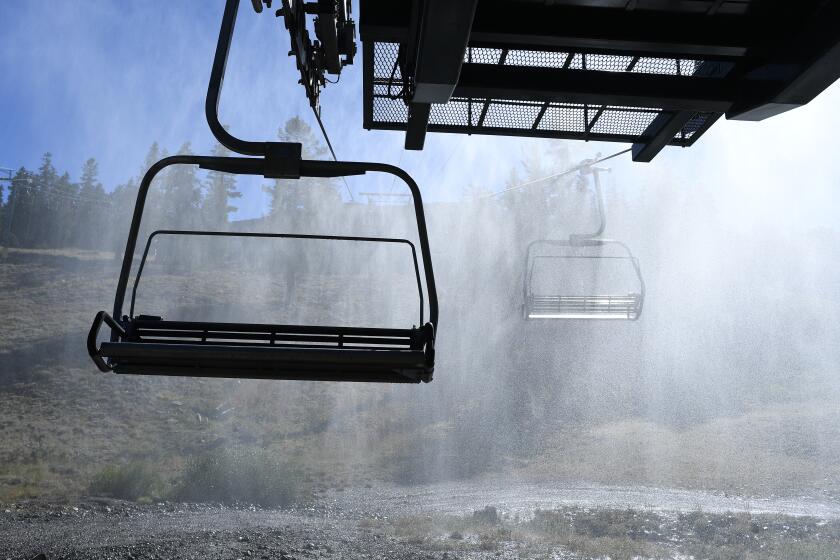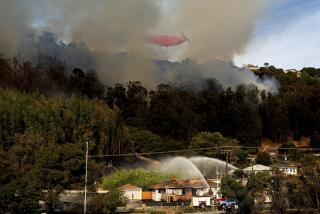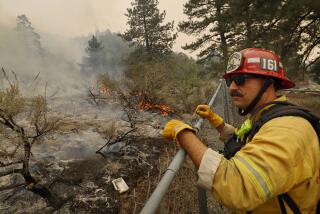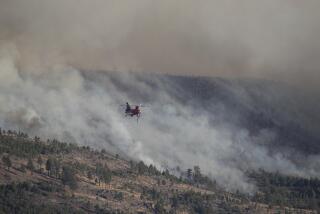Evacuation orders are lifted in South Lake Tahoe as crews keep Caldor fire reined in
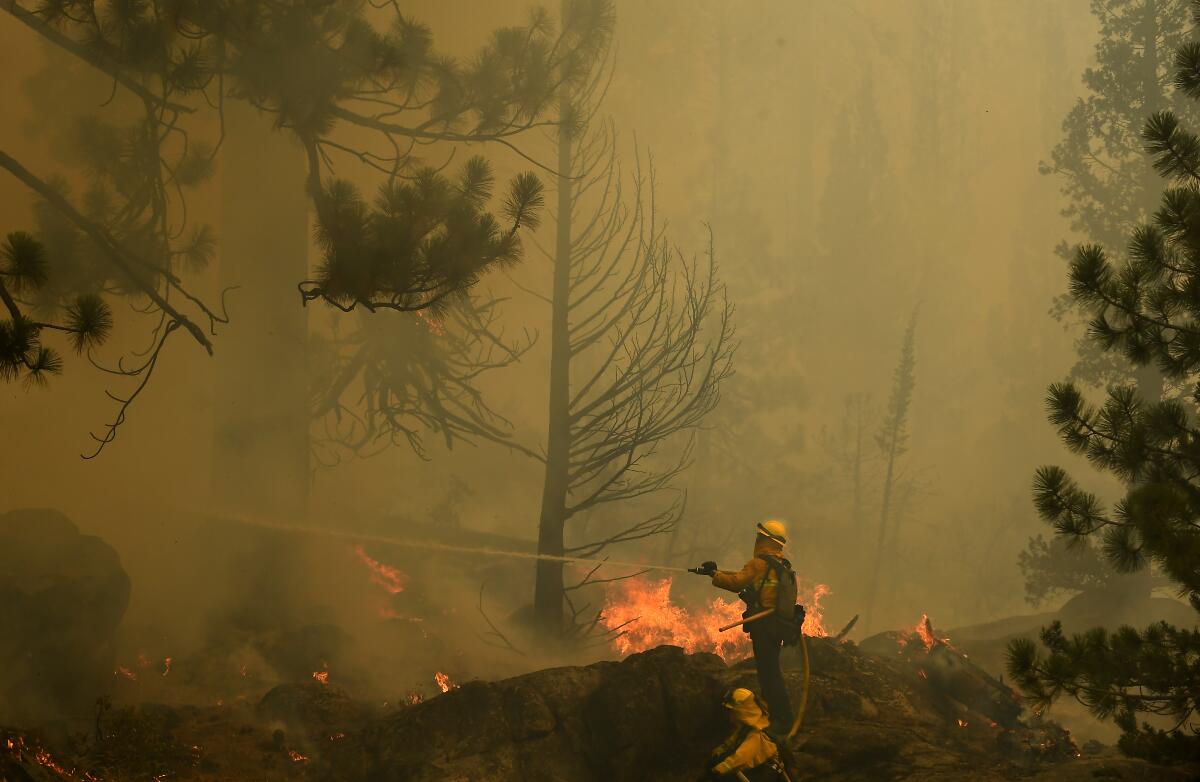
Thousands of firefighters have made steady progress battling two large blazes that stretch across swaths of Northern California.
The Dixie fire, which now spans five counties in Northern California near Chico, is 56% contained, officials say. Since Friday, the blaze has grown to 898,951 acres, and more than 3,800 firefighters continue to battle it.
Farther south, in the area surrounding South Lake Tahoe, the Caldor fire held steady at about 215,400 acres burned and 44% containment as of Sunday night. Firefighters in recent days have been working extensively to prevent the fire from destroying the ski resorts and other structures in this heavily trafficked region.
State fire officials lifted evacuation orders in the city of South Lake Tahoe and other areas along the western shore of the lake at 3 p.m. Sunday, allowing thousands of residents who fled a week ago to return home. Those areas were still under an evacuation warning as of Sunday night.
Evacuation orders were still in place for the communities of Fallen Leaf Lake, Christmas Valley, Meyers and North Upper Truckee.
The weather had been working in fire crews’ favor last week. Much of the fire’s northwestern edge along U.S. Highway 50 is contained, but officials are concerned that an increase in wind along with hotter conditions could lead the fire to break through the containment zone in certain spots.
“The way that shows up is in an increase in fire intensity,” said Tim Ernst, Cal Fire operations section chief. “We had a lot more hot spots pop up” within the containment zone.
The fire’s northeastern edge protruding up to Wrights Lake is still very active and intense — and the rugged, remote conditions aren’t making the work of maintaining containment lines any easier. Ernst said firefighters had had to fly in pumps and other equipment because it was so difficult to access the area.
“Everything has held real well,” Ernst said — adding that on the fire’s east side near South Lake Tahoe there hasn’t been any damage to structures.
Officials credited aggressive firefighting, improved weather conditions and past efforts to prepare for wildfire with saving the resort town.
Ernst said firefighters would spend the day doing mop-up work and making sure hot spots didn’t spread and threaten homes. Firefighters had carved containment lines around more than a third of the blaze.
Capt. Parker Wilbourn, a public information officer on the fire, told The Times on Saturday that three key factors were helping to save South Lake Tahoe: extensive firefighting operations, residents maintaining defensible space around their homes and past forest management projects.
“They’ve had a forest clearing initiative for the last nine to 10 years that really cleared out that fuel load,” he said, crediting the U.S. Forest Service with completing both prescribed burns and vegetation-thinning operations.
Up north on the Dixie fire, reports came in of the first firefighter fatality. A spokesman for the California Department of Forestry and Fire Protection said a firefighter had died due to “an illness” but declined to say whether it was related to fighting the blaze. A local NBC affiliate reported that it was a U.S. Forest Service firefighter who died but that the death wasn’t related to the fire.
The blaze has been burning for almost eight weeks after starting in a dense section of forest in Plumas County when a downed tree may have met with PG&E equipment and sent sparks flying. It’s California’s second-largest wildfire on record and continues to grow.
Edwin Zuniga, a public information officer on the fire, said that there had been lots of spotting — when sparks are carried by the wind and start new fires — on the north side of the fire but that it was “nothing our crews haven’t been able to get a hold of.”
He added that fire crews would be focusing on the south side of the fire on Sunday to prevent it from making a run toward U.S. Highway 395. On Saturday, four aircraft ferried water from Frenchman Lake and dumped it on the fire. That work would continue Sunday in the area around Milford and Janesville, Zuniga said.
“We have resources in places. That area is our main priority.”
Meanwhile in Placer County, a new fire that broke out at 1p.m. Sunday in the town of Auburn — 30 miles northeast of Sacramento — prompted an evacuation order near Lake Clementine, located in Auburn State Recreation Area, according to the Placer County Sheriff’s Office. The Bridge fire was 250 acres as of 8 p.m.
More to Read
Sign up for Essential California
The most important California stories and recommendations in your inbox every morning.
You may occasionally receive promotional content from the Los Angeles Times.
